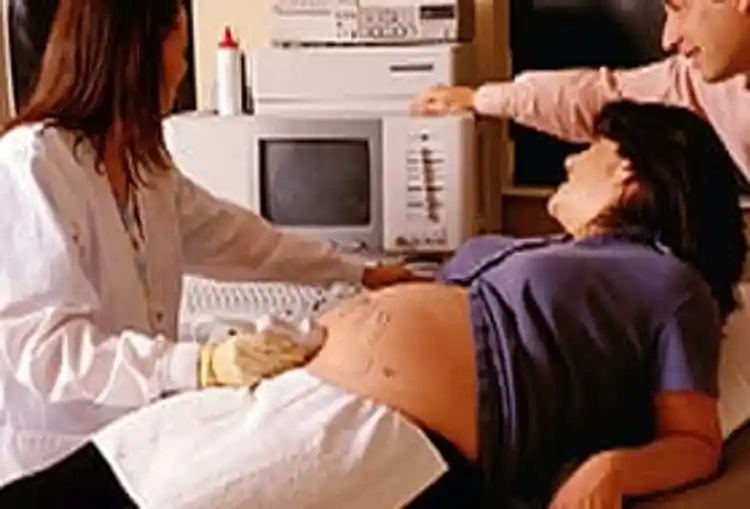Are Ultrasound Tests Safe?

Hide Video Transcript
Video Transcript
: Are ultrasound tests during pregnancy risky?
Dr. Keith Eddleman Ob/GYN
Like with any medical test, you're looking at the risks of the tests and the benefits you are going to gain from it. And most people believe that if there are any risks of ultrasound, they are so, so minimal and the benefit you're going to gain from the knowledge that you get from the ultrasound is outweighed by any potential risks. What are the benefits of ultrasound? You use them to document fetal viability. You use them to estimate, or not estimate, to identify the number of fetuses that are present, you identify the amniotic fluid volume, you locate the placenta and then you look at the size of the baby to make sure the growth is normal, and at around 20 weeks, around 18-20 weeks, you can evaluate many, many of the fetal anatomic structures and make sure that all of the fetal anatomic structures are developing normally. So, basically, you can use it to access a variety of different potential fetal problems. Narrator
Okay, but structurally mostly right? Dr. Keith Eddleman Ob/GYN
Not all structurally. Narrator
But you can't tell genetically can you? Dr. Keith Eddleman Ob/GYN
No, you can't tell genetically without a genetics test, but there are some structural anomalies or patterns of structural anomalies that are suggestive of genetic syndrome that may lead you to do testing for that genetic syndrome if you see a certain constellation of ultrasound findings. Narrator
Like what? Dr. Keith Eddleman Ob/GYN
There's a disorder called Beckwith-Wiedemann. it's associated with a large baby, a tongue that protrudes out, so if you see a large baby, a tongue that's protruding, you may think about that. Something called Meckle-Gruber Syndrome, their kidneys have cysts in them, I mean you can have a neural tube defect. So, if you see that constellation, then that may tip you to go and recommend invasive testing to definitively diagnose the syndrome. Narrator
Are there any treatments, prenatally for those? Dr. Keith Eddleman Ob/GYN
There are some disorders that are amenable or you can improve outcome with prenatal treatment, but many of the disorders no, it's just having the diagnosis, is, but it does give you the opportunity to learn about the disorder, make decisions about how you want to manage a pregnancy, and there are some disorders for which intervention right at the time of birth is important. For instance, a cardiac defect. There are some fetal cardiac defects that need to be addressed immediately. In other words, the baby needs to be taken from the delivery room to the operating room. Waiting time is going to increase the chances of compromise. 
